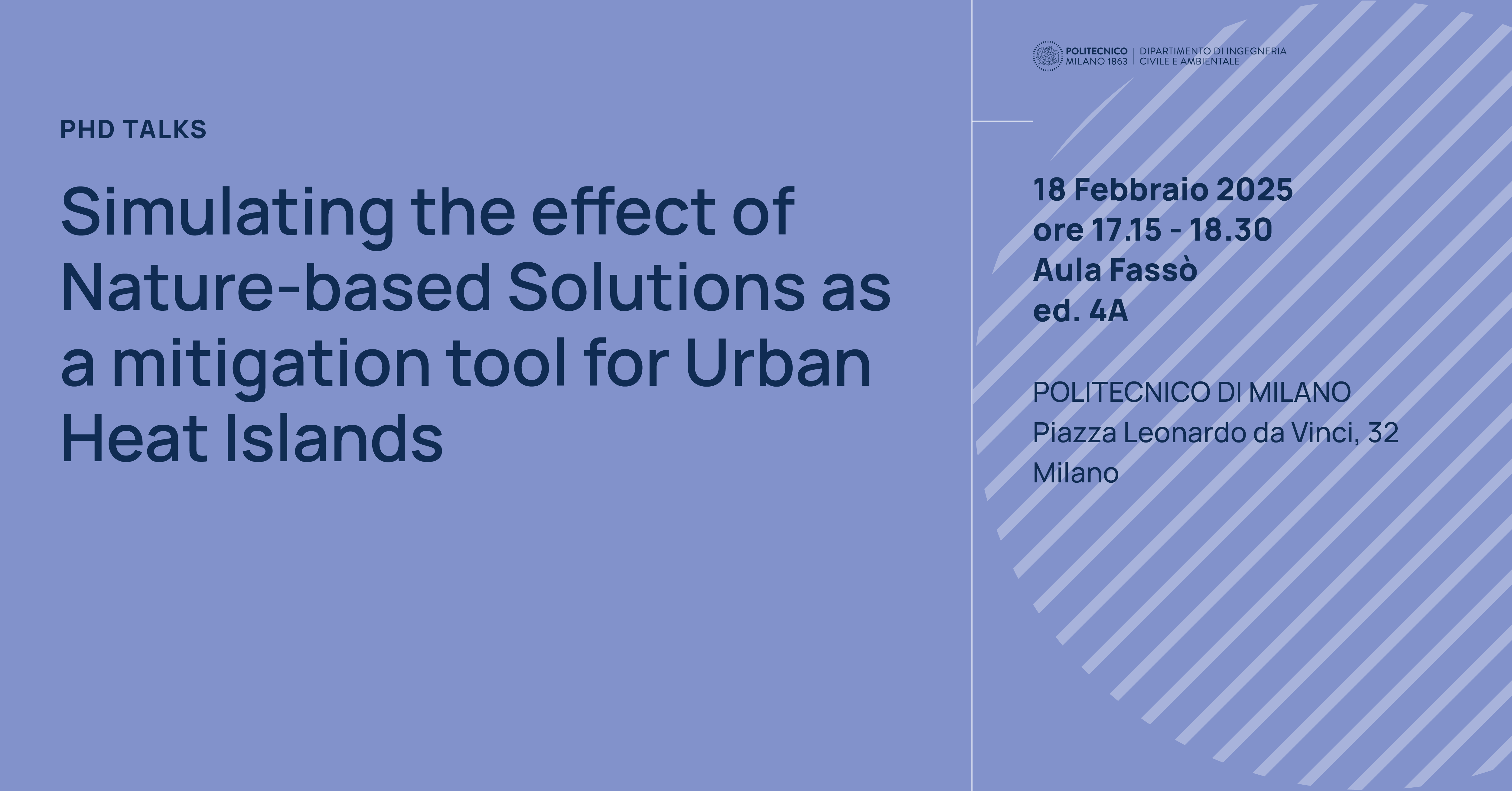
- This event has passed.
PhDTalks | Simulating the effect of Nature-based Solutions as a mitigation tool for Urban Heat Islands

The next appointment in the PhDTalks series will take place on Tuesday, February 18th, in the Fassò Room (Building 4A), from 5:15 PM to 6:30 PM CET.
PhDTalks is a series of seminars and discussions among PhD students. The events aim to provide a space for networking among PhD students and connecting with the many projects developed within our department.
The speaker, Angelly de Jesus Pugliese Viloria, will lead a seminar titled “Simulating the effect of Nature-based Solutions as a mitigation tool for Urban Heat Islands.”
At the end of the event, a small refreshment will be available, funded by the department.
It will also be possible to attend the conference online at the following link.
Abstract
More than 3.3 billion people live in areas highly vulnerable to climate change, facing threats to health, infrastructure, and economic stability. This research focuses on modeling and mapping the susceptibility towards climate change-related hazards using machine learning, with a particular emphasis on the Urban Heat Island (UHI) effect—an issue prevalent in densely built environments with limited vegetation.Using satellite and authoritative data, including Landsat 8-derived land surface temperature and land cover information, surface UHI was modeled in Milan. To explore mitigation strategies, the study assesses the impact of Nature-Based Solutions (NbS), which have been shown to reduce both the frequency and intensity of UHIs. By simulating the strategic addition of vegetation, the analysis re-evaluates UHI patterns to quantify the potential benefits of NbS in urban environments.
Speaker’s bio
Angelly is a computer scientist from Universidad del Norte (Colombia) and a Geoinformatics Engineer from Politecnico di Milano (Italy). Her projects consisted of the development of a QGIS plugin for location privacy and the application of deep learning to classify deforestation leveraging open satellite imagery, respectively. She is currently pursuing a PhD in Environmental Engineering focused on Geomatics. Her current research regards the application of artificial intelligence to produce the susceptibility models and maps of climate change related hazards in urban areas. Furthermore, the models can be used to evaluate the impact on the susceptibility introduced by simulated nature based solutions.
During her PhD studies, she has been a consultant for the World Bank, specifically developing geospatial applications currently focused on GeoAI as a service.
In her free time, she enjoys doing exercise, dancing, connecting with nature, and reading a good book, mostly from Colombian authors.
